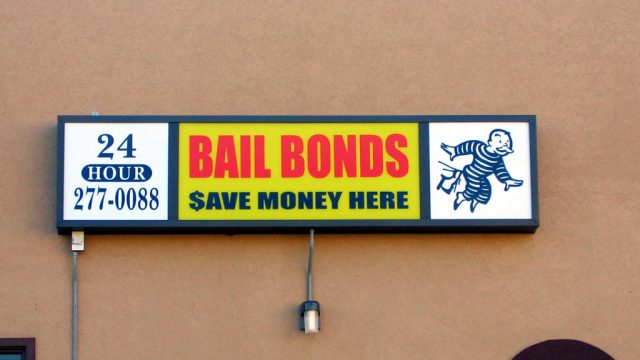North Dakota Should End Cash Bail Requirements

Bail, as I’m sure you all know, is money or valuable property put into a bond so that someone charged with a crime can be released from jail pending resolution of the charges.
On paper, it’s not a terrible system. It frees up jail space. It allows the accused to better participate in defending themselves against the charges. It also allows them to at least attempt to continue a somewhat normal life – going to work, caring for children, etc. – as the “wheels of justice turn slowly.”
The problem in practice is you can only be released on bail if you can afford bail.
That’s a problem for our criminal justice system, as the ACLU of North Dakota points out in a press release today.
“Whether or not you are in jail should not depend on your ability to pay for your freedom. Yet that’s the way our current cash bail system works,” Dane DeKrey, ACLU of North Dakota advocacy director, is quoted as saying in the release (read it in full below). “This system of wealth-based incarceration keeps people who have not been convicted of a crime in jail for weeks, months and even years. People lose their families, jobs and homes as they wait for their case to move through the system. Money should never decide a person’s freedom, yet that’s exactly what happens every day in courts across the state.”
Remember that not everyone who is arrested and charged with a crime is ultimately convicted of that crime. Some people get acquitted. Other times the charges get dropped for one set of reasons or another.
We presume that people who are not convicted of a crime are innocent of that crime. But what if you’re innocent, be it through acquittal or the collapse of the state’s case against you, only to be released from jail into a destroyed life? One characterized by unemployment and isolation because you couldn’t go to work or interact with your friends and family?
Think about this, for a moment: Most criminal cases never go to trial. Most are settled by plea agreements. How many of those pleas happen because the accused, who can’t afford bail, gives up fighting the state’s case against them? Thinking that the consequences of the conviction are less than the cost, in time and money, of a lengthy trial process?
I think the ACLU gets a bit too overheated in their argument against cash bail. Their release accuses the state of using bail bonds as “a way to separate people who have money from those who don’t.”
Those inflammatory accusations are going to make reform harder, not easier.
Cash bail began as a good policy. The best way for the state to let at least some people out of pre-trial detention on conditions that protected the public and provided some measure of certainty that the released parties would show up for their trials. But it’s 2019 now, and we have other tools at our disposal, which serve as a better mechanism for accomplishing those goals.
Tracking devices, for instance, can be used to ensure a person stays where they’re supposed to and can be found when needed. That sort of thing would cost taxpayers less than pre-trial detention does, as the ACLU’s Blueprint for Smart Justice report illustrates, and it probably means more justice in the criminal justice system.
For the sake of that justice, we should all want people accused, but not yet convicted, of crimes to have as normal a life as possible under the circumstances. We should want them to have the opportunity to maintain employment and connections to family and friends. We should want them to be empowered to participate in their defense, which is a lot easier out of jail than in it.
If we can do that, and save the taxpayers money along the way, isn’t that a win for everybody?
The State of North Dakota is pursuing a pilot project in some judicial districts which will look at pretrial services, including bail practices. Let’s hope one conclusion from this project is that the era of cash bail should be over.
Here’s the full release from the ACLU.
[scribd id=428762541 key=key-kNeXz5PMMy7vzDzQL7Vs mode=scroll]




